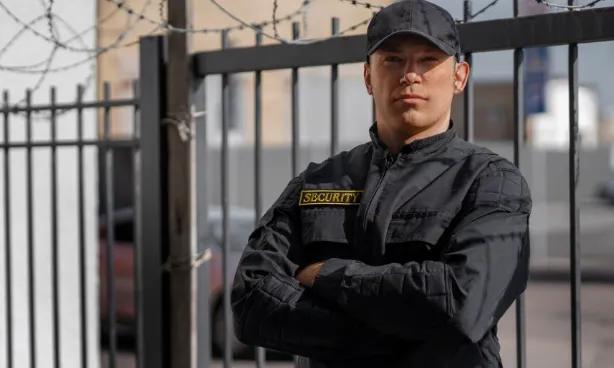Last updated on July 20th, 2025 at 03:33 am
Serving as a police officer is both an honor and a profound responsibility. Police officers act as guardians of public safety, ensuring that communities remain peaceful and lawful. This career demands dedication, integrity, and continual professional development. One of the critical hurdles aspirants must clear is the police officer civil service exam, a standardized assessment that evaluates candidates’ readiness for the challenges of law enforcement.
Navigating the Police Officer Civil Service Exam
The police officer civil service exam is a key milestone in the hiring process. It gauges cognitive abilities, communication skills, and judgment critical to policing.
Effective Preparation Strategies
- Official Content Outlines: Review syllabi published by civil service commissions.
- Workshops and Seminars: Enroll in preparatory courses offered by academies or community colleges.
- Time‑Management Drills: Practice answering questions under timed conditions to build speed and confidence.
- Peer Study Groups: Collaborate with fellow candidates to discuss complex topics and share insights.
Understanding the Role of a Police Officer
Guardians of Public Safety
Police officers serve as first responders to accidents, crimes, and emergencies. Their presence deters wrongdoing and reassures citizens. Officers patrol assigned areas—on foot, by vehicle, or on bicycle—to observe, report, and, when necessary, intervene.
Enforcers of the Law
A primary duty is enforcing laws at the local, state, and federal levels. Officers investigate complaints, gather evidence, and collaborate with prosecutors. From traffic violations to major crimes, they ensure legal statutes are upheld fairly and impartially.
Community Partners
Modern policing emphasizes community engagement. Officers organize neighborhood watch programs, attend town hall meetings, and work with local schools. Establishing trust fosters cooperation, making crime prevention more effective.
Crisis Managers
In volatile situations—domestic disputes, mental health crises, or large‑scale disturbances—officers apply de‑escalation techniques, aiming to resolve issues peacefully. They also connect individuals to social services when appropriate.
Educational and Personal Qualifications
Academic Foundations
Most police departments require at least a high school diploma or GED. However, candidates with associate’s or bachelor’s degrees in criminal justice, sociology, psychology, or related fields often have an advantage. Higher education deepens understanding of societal factors and criminal behavior.
Physical and Medical Standards
Law enforcement demands physical stamina. Prospective officers undertake physical fitness tests measuring endurance, strength, agility, and flexibility. A medical evaluation screens for conditions that may impair performance, such as cardiovascular issues or severe visual impairments.
Character and Background Checks
A thorough background investigation scrutinizes criminal records, credit history, and personal references. Departments look for integrity, responsibility, and emotional stability.
Training at the Police Academy
Upon successful completion of all pre‑academy requirements, recruits enter the police academy for intensive training:
- Legal Doctrine: Study of criminal law, constitutional law, and procedural regulations.
- Use‑of‑Force Protocols: Training on de‑escalation, defensive tactics, and safe deployment of non‑lethal weapons.
- Firearms Proficiency: Instruction in weapon handling, marksmanship, and judgment‑based scenarios.
- Emergency Vehicle Operations: Techniques for safe and effective pursuit driving.
- Community Policing Principles: Strategies for building and sustaining community partnerships.
- Ethics and Cultural Competency: Emphasis on unbiased policing and respect for diverse populations.
Graduation signifies readiness to serve as a sworn officer, often celebrated with a formal badge‑pinning ceremony.
Field Assignment and Probation
New officers undergo a probationary period—typically six months to two years—under the supervision of experienced Field Training Officers.
Special Units and Career Pathways
After probation, officers may apply for specialty units:
- K–9 and Animal Control: Partner with trained dogs for searches and apprehensions.
- SWAT and Tactical Teams: Handle high‑risk operations and crisis interventions.
- Detective and Investigations: Conduct complex criminal investigations.
- Traffic Enforcement: Focus on accident reconstruction and highway patrol.
- Cybercrime and Digital Forensics: Investigate online crimes and analyze electronic evidence.
- Community Outreach and Youth Programs: Lead prevention and education initiatives.
Advancement in rank—such as sergeant, lieutenant, and captain—typically requires promotional exams and demonstrated leadership.
Continuing Education and Professional Development
Promotional Examinations
To ascend the ranks, officers often take promotional exams assessing leadership, administrative skills, and advanced legal knowledge.
In‑Service Training
Agencies mandate regular training updates on topics like de‑escalation, Crisis Intervention Team protocols, and emerging technologies.
Educational Incentives
Many departments offer tuition reimbursement and partnerships with colleges. Pursuing advanced degrees can open doors to command positions or specialized assignments in forensic science, public administration, or homeland security.
Preparing Yourself Today
- Volunteer and Intern: Engage with local law enforcement or community programs to gain firsthand experience.
- Stay Fit: Implement a balanced fitness routine emphasizing cardiovascular health, strength training, and flexibility.
- Cultivate Communication: Hone writing skills and public speaking for clear report writing and community engagement.
- Demonstrate Integrity: Uphold ethical standards in all aspects of life.
- Network: Attend career fairs, criminal justice forums, and reach out to current officers.
- Research Agencies: Understand differences in municipal, county, state, and federal law enforcement roles and cultures.
- Prepare Early: Familiarize yourself with the police officer civil service exam content outline and scheduling procedures.
Conclusion
A career as a police officer is defined by service, accountability, and ongoing development. From acing the police officer civil service exam to graduating the academy and growing through specialized units, each step builds the skills and resilience necessary to protect and serve. Though demanding, the profession offers profound fulfillment: safeguarding communities, upholding justice, and forging lifelong bonds.

